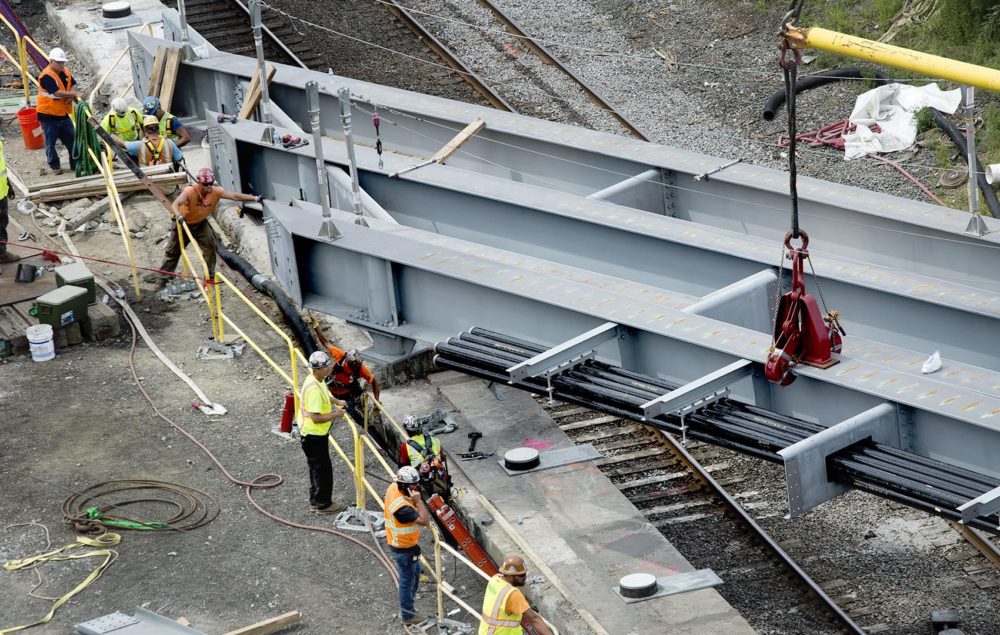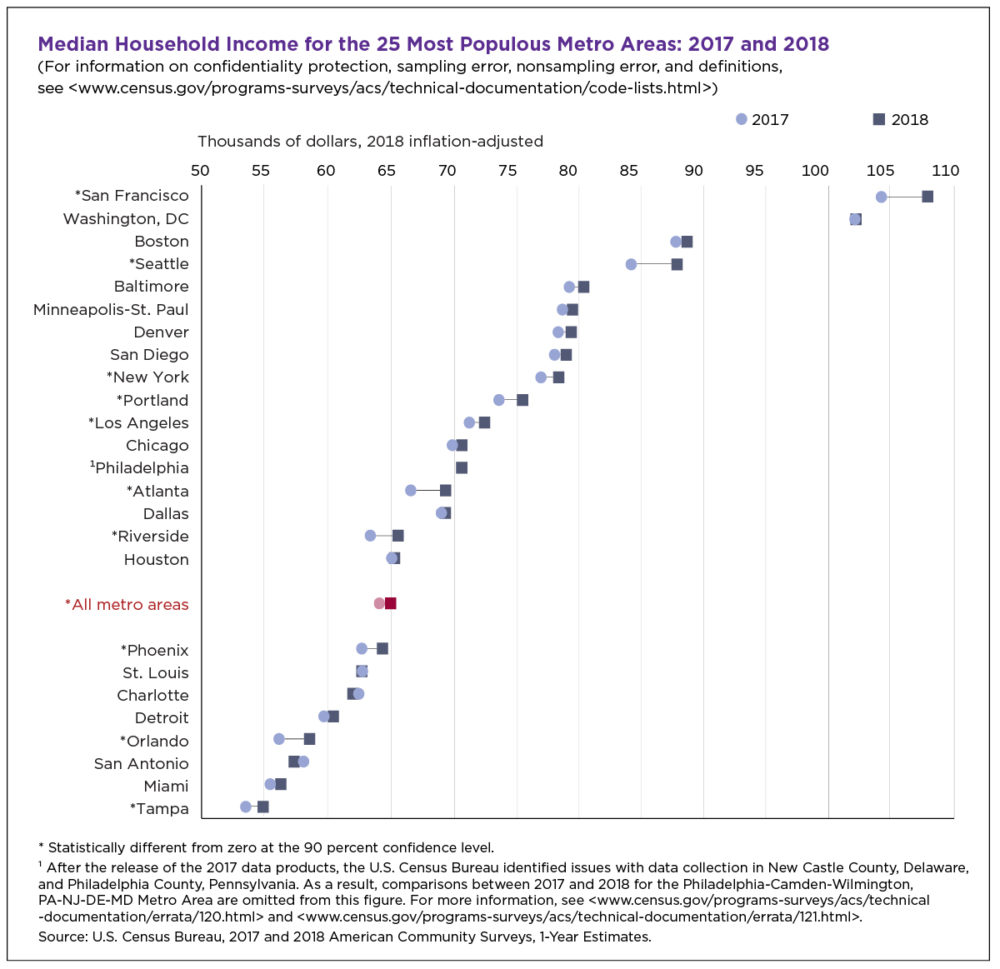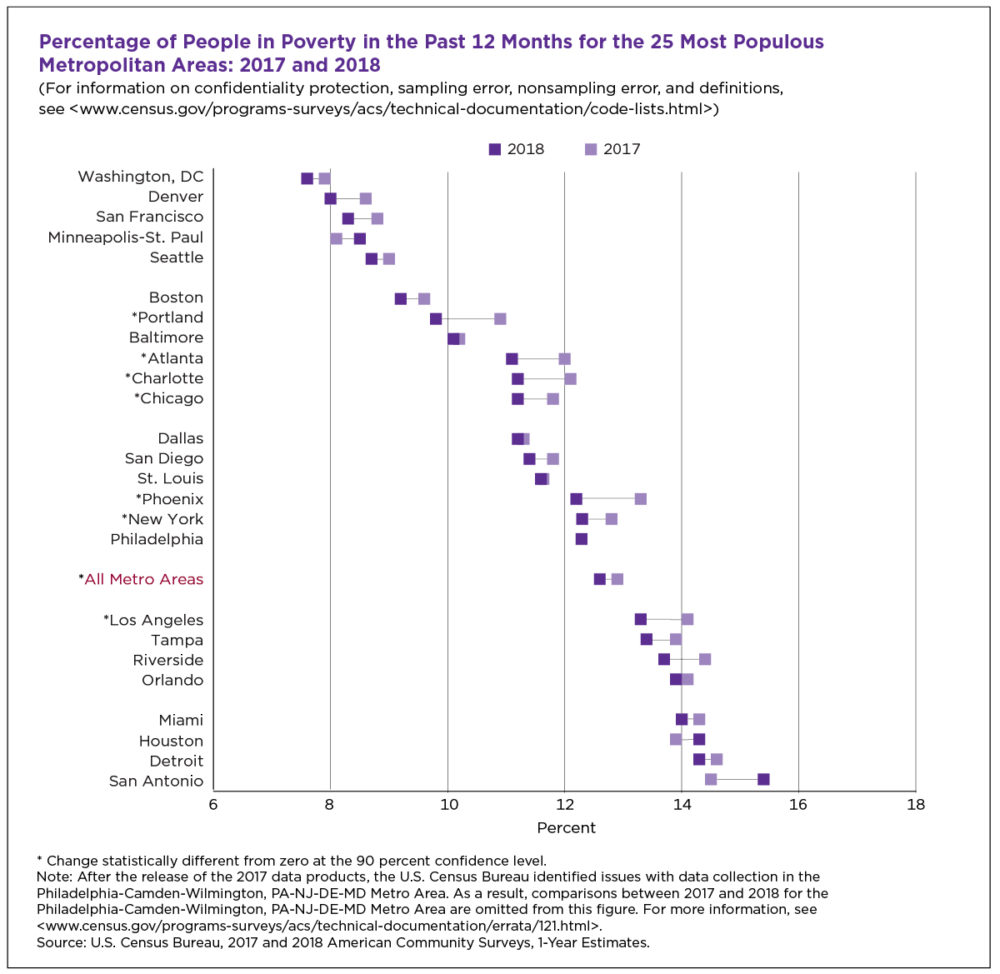Advertisement
Income Ticked Up, Poverty Ticked Down In Mass. In 2018

Median household income ticked up less than 1% in Massachusetts last year, and the state's poverty rate ticked down by a similar percentage, according to census survey data released Thursday.
Income inequality also rose slightly in Massachusetts. On a national level, the gap between the richest and the poorest U.S. households is the largest it's been in the past 50 years.
In Massachusetts, median household income was $79,835 in 2018, up from $79,371 the year prior, an increase of just 0.6%.
Massachusetts' household income is among the highest in the country, behind only Washington, D.C., Maryland, New Jersey and Hawaii.
U.S. median household income has never been higher — at nearly $62,000 last year — though income growth (0.8%) dipped when compared with the prior three years.
Income grew a bit more in the Boston metro area — a region that stretches into southern New Hampshire — than for Massachusetts as a whole. Greater Boston's median household income was $88,711 in 2018, an increase of 1%.
Here's how income in this region compares to other large metro areas:

A few caveats, which we've reported in the past: The data are based on surveys, so they have margins of error; there are critics of the Census Bureau's methodology on income; and the one-year snapshots are not the same as wage growth, so income could, for instance, rise as people work more full-time hours than a prior year, rather than seeing a salary or wage raise.
Poverty
The poverty rate fell last year in 14 states, including Massachusetts. Here, the rate dipped from 10.5% in 2017 to 10% in 2018 — a change the Census Bureau describes as "statistically significant." The decline translates to 28,283 people leaving "poverty."
As the bureau states: "Poverty status is determined by comparing annual income to a set of dollar values that vary by family size, number of children, and the age of the householder." The thresholds do not vary by geography, and there are critics of the poverty rate as well.
In the Boston metro area, the poverty rate was 9.2% last year. Here's how that compares to other large metros:

With reporting from NPR and past WBUR stories.
